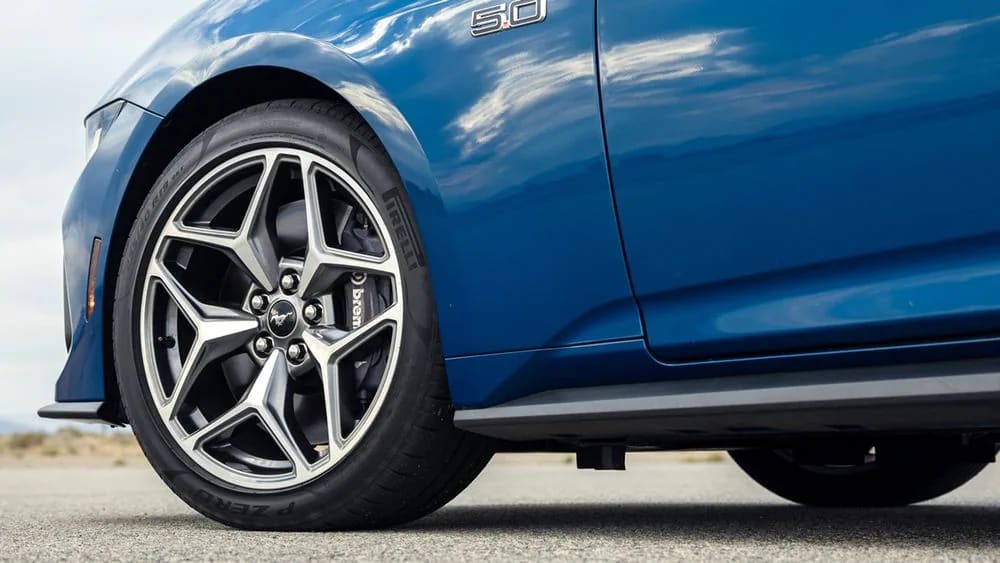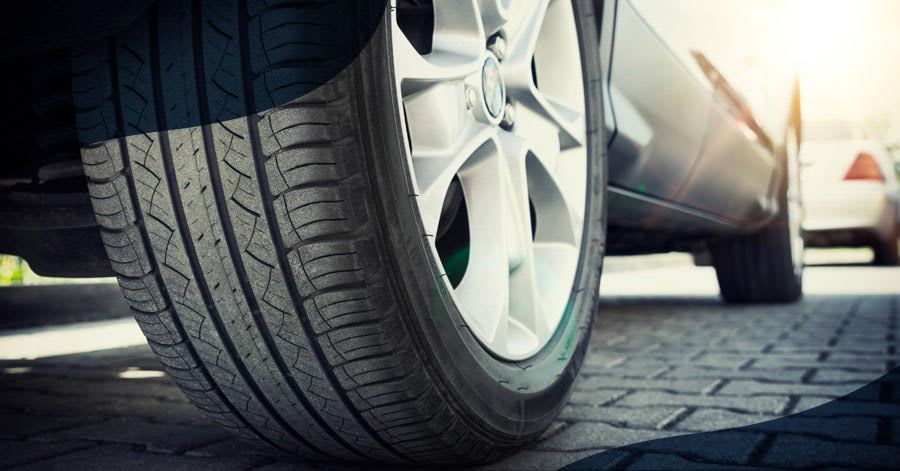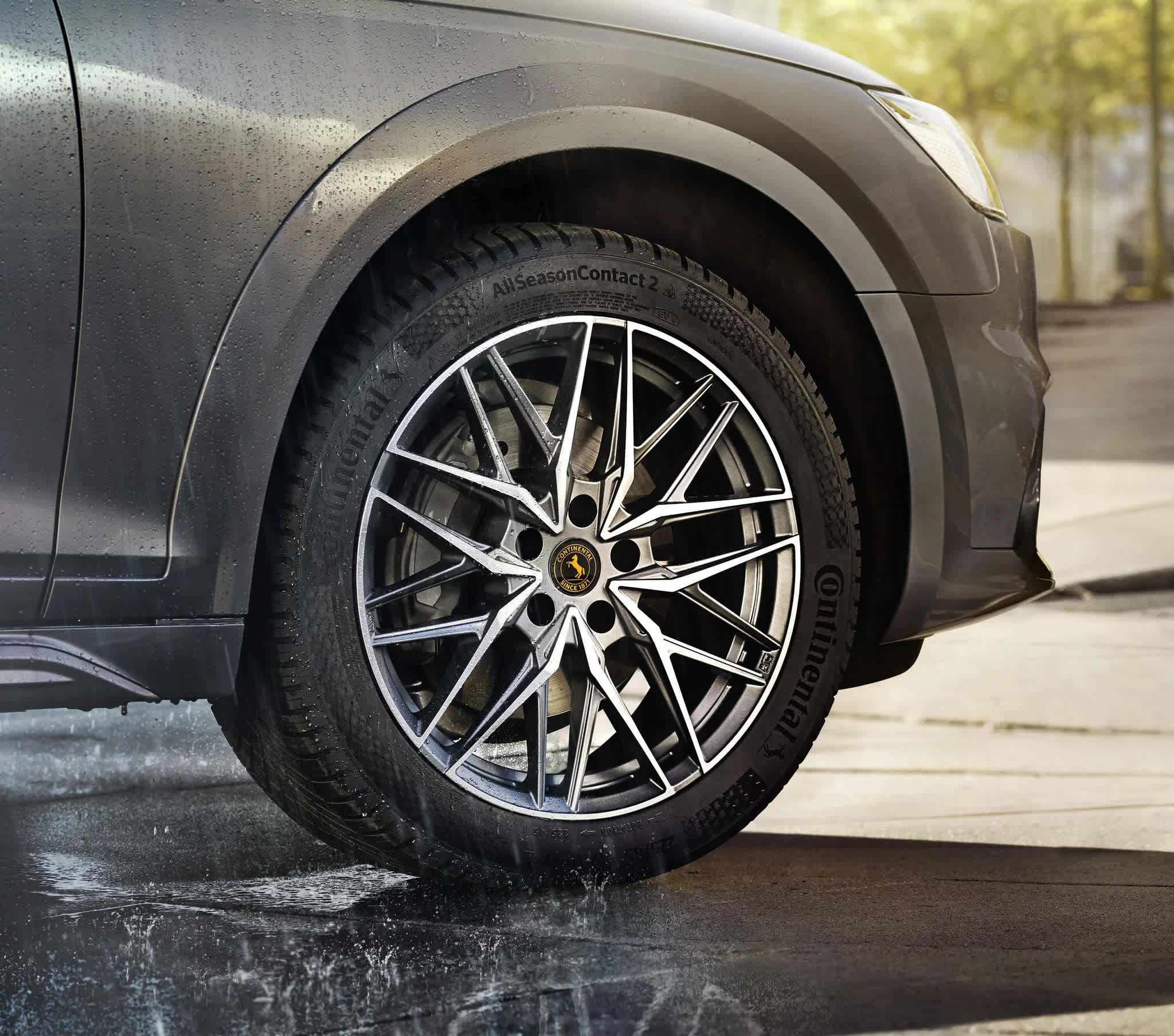Compare
Free shipping
Best price guarantee
SimpleCrew exclusive savings
0% financing options
Tire replacement coverage
24/7 roadside assistance
Easy returns

When it comes to purchasing new tires for your vehicle, it's crucial to understand the differences between the various types available. Two popular options are summer tires and all-season tires, each designed with specific performance characteristics in mind.
Selecting the right tire for your vehicle depends on several factors, including your local climate, driving style, and the level of performance you expect from your vehicle. Making an informed decision can significantly impact your vehicle's handling, safety, and overall driving experience.
In this article, we'll dive into the key differences between summer and all-season tires, exploring their unique features, performance capabilities, and suitability for different driving conditions. By the end, you'll have a better understanding of which tire type best aligns with your needs.
What Are Summer Tires?
Summer tires, also known as performance tires, are specifically designed to deliver optimal performance in warm weather conditions. These tires are composed of softer rubber compounds that provide superior grip on both dry and wet roads, ensuring excellent traction and handling during the summer months.
One of the defining features of summer tires is their unique tread pattern. Summer tire tread designs typically feature fewer grooves and sipes than all-season tires, allowing maximum contact between the tire and the road surface. This increased contact patch enhances steering response, cornering stability, and braking performance, making summer tires ideal for high-performance vehicles and drivers who enjoy a more spirited driving style.
The advantages of summer tires are particularly evident in warm weather conditions. The softer rubber compound remains flexible in higher temperatures, enabling the tire to ‘stick’ to the road surface for improved grip. This characteristic is especially beneficial when navigating tight turns or engaging in sudden braking maneuvers. Additionally, summer tires often have shallower tread depths, which contributes to their responsive handling and precise steering feel.
It's important to note that while summer tires excel in warm weather, they are not suitable for use in colder temperatures or winter conditions. The softer rubber compound can become too rigid in low temperatures, reducing traction and increasing braking distances. If you live in an area with cold winters or frequently encounter snow and ice, it's recommended to switch to winter tires during the colder months.
When considering summer tires for your vehicle, it's essential to evaluate your driving needs and preferences. If you prioritize performance, agile handling, and a sporty driving experience, summer tires may be the ideal choice. However, keep in mind that the softer rubber compound and shallower tread depth of summer tires may result in a slightly shorter tread life compared to all-season tires.
Ultimately, summer tires are designed to deliver uncompromising performance in warm weather conditions. Their unique tread patterns, softer rubber compounds, and performance-oriented characteristics make them an excellent choice for drivers who demand the highest level of responsiveness, cornering ability, and overall driving enjoyment during the summer months. Their exceptional grip, traction, handling, and stability can be gauged from the fact that most tires used on the track are summer or ultra-high-performance tires. Period.
What Are All-Season Tires?

All-season tires offer a versatile solution for drivers seeking reliable performance across various conditions throughout the year. These tires are engineered with a unique rubber compound that remains flexible over a broad temperature range, ensuring consistent traction on both wet and dry surfaces. Unlike summer tires, all-season tires boast intricate tread patterns with deeper grooves and dense sipes, enhancing their ability to grip in light snow and rain.
The distinctive tread design of all-season tires contributes significantly to their adaptability. Elaborate patterns and strategically placed sipes help channel water efficiently, minimizing the risk of hydroplaning in wet weather. This feature makes them a practical choice for drivers who face varying weather conditions but do not encounter severe winter climates. The deeper tread depth also ensures longer wear, offering durability and an extended lifespan compared to summer tires.
Ideal for daily use, all-season tires provide a harmonious blend of performance and comfort. They offer a smooth, quiet ride, making them a favored choice for a wide range of vehicles. This adaptability means that drivers can rely on all-season tires throughout the year without needing to switch them seasonally, providing convenience and cost-effectiveness—an appealing feature for many customers who prioritize hassle-free tire solutions.
Performance Differences: Summer vs All-Season
Summer and all-season tires are engineered for distinct performance attributes that cater to specific driving needs and environmental conditions. Understanding these differences is crucial for selecting the right tire type for your vehicle.
Traction and Handling
Summer tires are crafted to deliver optimal grip and maneuverability, particularly in dry and wet conditions. Their specialized tread patterns and soft rubber formulations ensure that they adhere to the road surface, providing drivers with enhanced agility and control. This design contributes to improved responsiveness when cornering and braking, making them ideal for performance-oriented driving.
Conversely, all-season tires are engineered to maintain traction across a variety of conditions, including light snow and icy roads. Their intricate tread patterns and additional sipes allow for effective water evacuation and traction on slippery surfaces. While they might not match summer tires in terms of pure dry-weather performance, they offer a reliable balance for year-round driving scenarios.
Comfort and Noise
All-season tires are often favored for their ability to offer a smooth and quiet ride, thanks to their design, which absorbs road irregularities effectively. This makes them particularly suitable for long highway drives and everyday commuting, where driver comfort takes precedence.
Summer tires, on the other hand, prioritize performance attributes that can lead to a slightly firmer ride. The focus on grip and handling can result in increased road noise and reduced cushioning on uneven surfaces. For those who prioritize a dynamic driving experience, this trade-off might be acceptable, given the enhanced performance benefits.
Environmental Adaptability
The adaptability of all-season tires makes them a practical choice for regions with moderate climate variations. Their ability to perform adequately in both warm and cold conditions offers convenience without the need for seasonal tire changes. This flexibility makes them an attractive option for drivers seeking a single set of tires for year-round use.
In contrast, summer tires are designed for optimal performance in conditions where temperatures are consistently above 45 degrees Fahrenheit. Their advanced construction allows them to excel in these environments, though they are less effective in colder climates. Drivers in areas with significant seasonal changes should consider winter tires for colder months to maintain optimal safety and performance.
Tread Life and Durability
In assessing tread life and durability, all-season tires often stand out due to their robust construction and thoughtful design. These tires employ a blend of materials engineered to withstand a variety of driving conditions, resulting in enhanced longevity. The tread patterns, featuring a combination of sipes and grooves, not only improve traction but also distribute wear evenly, helping preserve the tire's structure over time.
Summer tires, known for their performance capabilities, may experience varying rates of wear based on driving habits and environmental conditions. The composition of these tires, while excellent for gripping warm and dry roads, can be more susceptible to accelerated wear if driven aggressively or used in cooler climates. To optimize the lifespan of summer tires, regular maintenance, such as balancing and alignment, along with mindful driving practices, is essential.
All-season tires also benefit from their adaptability to different road surfaces, which contributes to a more uniform wear pattern. This adaptability ensures that they maintain their integrity and performance over a longer period, making them a practical choice for drivers who encounter diverse road conditions. In contrast, summer tires excel in stable environments, where their specialized design can be fully leveraged without compromising durability. Understanding these aspects allows drivers to select tires that best match their usage patterns and environment.
Choosing Between Summer and All-Season Tires

Selecting the right tire type involves more than just understanding their characteristics. It's essential to consider how each aligns with your specific driving conditions and lifestyle needs. Begin by analyzing the environmental conditions in your area. In regions where temperatures remain consistently high, summer tires can offer enhanced performance and traction due to their specialized design. However, if you frequently experience diverse weather conditions, all-season tires provide the adaptability needed to maintain performance across different climates.
Driving Habits and Vehicle Requirements
Your driving style and vehicle performance requirements also play a critical role in this decision. For those who drive vehicles designed for speed and precision, summer tires can significantly improve handling and control on both dry and wet roads. These tires cater to drivers who appreciate a more responsive driving experience, especially on challenging roadways. Conversely, if your driving consists of regular commutes and longer highway trips, all-season tires offer a balanced approach to comfort and reliability.
Consider the specific needs of your vehicle as well. Vehicles built with performance in mind may benefit more from the capabilities of summer tires while those prioritizing versatility and smooth travel align better with the characteristics of all-season tires.
Budget Considerations and Professional Guidance
Budget is another crucial factor when deciding between summer and all-season tires. While summer tires deliver high-level performance, they may necessitate switching to winter tires in regions with colder climates, impacting overall costs. In contrast, all-season tires, with their ability to function throughout the year, could serve as a more economical choice for drivers valuing convenience and durability.
Consulting with a tire professional can provide valuable insights tailored to your specific needs. These experts can assess your driving patterns, vehicle specifications, and local climate to recommend the most suitable tire type. When evaluating options—especially when considering ultra-high performance (UHP) tires—it's important to weigh the unique advantages each offers against your driving priorities. This thorough approach ensures that you select tires that not only meet performance expectations but also enhance safety and driving enjoyment.
Ultimately, the choice between summer and all-season tires depends on your unique driving needs, vehicle requirements, and local climate. By carefully considering these factors and consulting with tire experts, you can make an informed decision that optimizes your vehicle's performance, safety, and overall driving experience. When you're ready to shop for tires online and find the best deals, we invite you to explore our extensive selection at SimpleTire, where our team is dedicated to helping you find the perfect tires for your vehicle.
Ready to find the perfect tires?
Search By